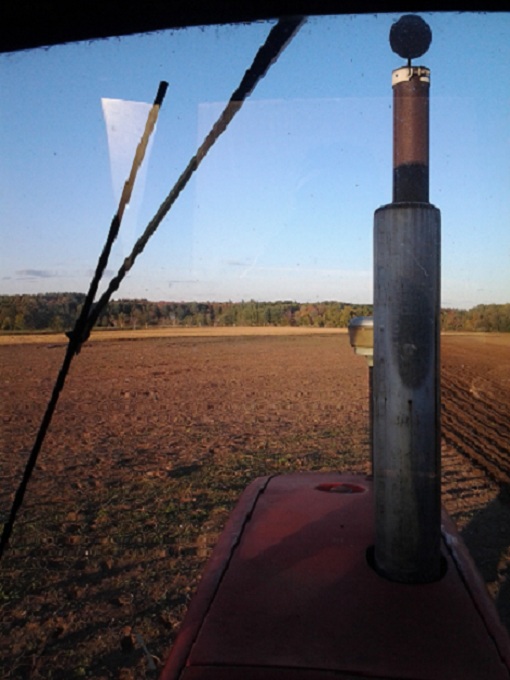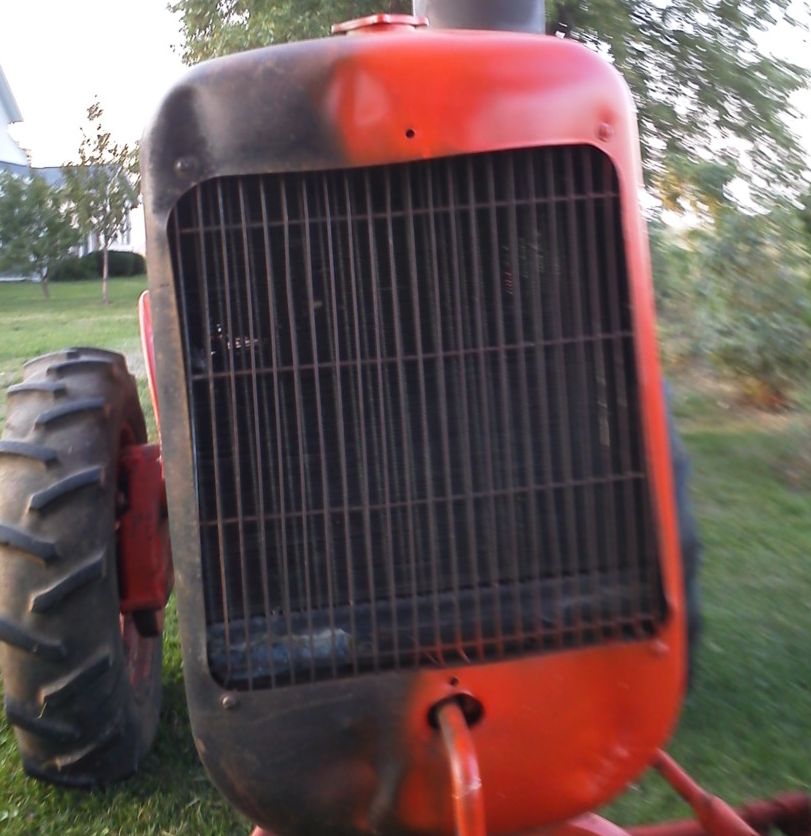Happy Thanksgiving, all!!! Seein's that today's holiday is a celebration feast, I find it appropriate to perform today's virtual demonstration using common Thanksgiving-day format:
Gelling occurs because fuels have additives which rather than being dissolved, are in suspension. Sitting at our family dinner table, I will use what I have at my immediate disposal, and give you the old-time-radio-show:
Watch, as I take my sister's glass of water, and add various substances... Note that I can stir in, and dissolve this sugar in water... now I can add some salt... it too, will dissolve... but notice that when I add pepper, it does not dissolve- it simply floats on top. If you pour pepper in salt, it will tend to float to the top. Now watch, as I add more salt... the pepper starts to spread away from the edges... that's because the salt has attached to the pepper a bit, and changed it's character as a compound. Now drop in a little spot of butter.
Of course, the butter just floats on the water, but now I'm going to hold this glass over one of the candles... and notice, the butter melts... spreads across the top of the water, and if I add more salt... and more salt, and more salt, the butter vanishes from the top, and the pepper now appears to 'mix' in with the hot water.
This is called Emulsification. The combination of materials which, when proper circumstances exist, promote even suspension of normally non-solubles into a solution.
This happens in EVERYTHING... from my sister's water glass, to your diesel tank, to your car's fuel tank, to the glass of wine at your dinner table. There's stuff in there that doesn't mix.
Now, I've placed Kathryn's water glass on the table to cool for 15 minutes, and notice- there's butter floating on top, with pepper globs in it, and below... the inside of the glass is starting to turn white... the butter has coagulated out, with pepper stuck to it, and salt is precipitating out and binding to the inside of the glass.
All aspects of Solution is TEMPERATURE DEPENDANT... that includes Emulsification and Precipitation.
Diesel fuel contains Paraffins to help keep all the additives and fractions in suspension.
Realize that Diesel Fuel is a generic term used in compression-ignition engines, the PETROLEUM component is HYDROCARBON (HC)... primarily Cetane, but other ANEs... and then there's additives. Bio fuels are predominantly CARBOHYDRATEs... they end on OL, rather than ANE. Carbohydrates and Hydrocarbons cannot be mixed to yield a stable solution. In the case of diesel fuel, they must have PARAFFIN added, in order for them, and lots of ancillary additives, to be properly suspended.
Paraffins WILL thin and dissolve... as long as the solvent and temperature are appropriate. I use a centuries-old mix of beeswax, turpentine, and linseed oil to make wood and metal protectant... and as long as it's warm, it will be a nice liquid... but the turpentine evaporates out quickly, and once cooled, it turns into a soft paste. If I dip a freshly-machined part into the liquid, as soon as I withdraw the part, the wax-mix coagulates to form an airtight protective coating that will prevent the part from corroding. When I make a high-precision air-bearing, I dip it in wax mix, then carefully package it for shipment... and 200-year-old technology gets it to the far end with 100% protection.
Diesel fuel... like my wax mix... and my sister's (now undrinkable water glass) is a liquid state at a certain temperature.
My wife, as a summer job (she's a schoolteacher) worked as the lab technician at a local fuel terminal. Every Wednesday, she took a styrofoam cooler, and made a trip to Whitey's Ice Cream to get milkshakes. They placed a half-pound bag of dry ice in the bottom of the cooler, and placed milkshakes on them, and she drove 4 miles down to the terminal. She then used the dry ice to perform tests on the fuels, and used the ice-cream to verify proper function of everyone's taste buds.
Each fuel type consisted of 5 samples, they chilled and heated each, determined the property changes, evaporation points, vapor pressures, and finally, put them all back to 68F, and placed them in a centrifuge at 2500G to see how they'd settle out.
The point at which gelling occurs, is NOT a fixed point... it depends on many factors, but if you do your own testing, you'll find that regardless of GRADE of diesel fuel, you will start to observe paraffins coagulating around 30F.
IF little droplets of WATER in your fuel comes in contact with a surface below 32F, it will freeze into little solid droplets... and being a crystalline structure, it will expand to a greater volume than it did as water... with an expansive force of 115,000psi.
(irrelevant to this lesson, but interesting note- if you have a family heirloom locked inside a safe which you no longer have the ability to open by proper means, take it outside, drill small holes around the hinges and lock, and fill them with water, let them freeze overnight... and the safe will be open tomorrow. Water expands with higher force than most steels of same volume can withstand)
Back to fuels... so your diesel is cooling, and turning to waxy goo... at least, in the area near the containment most exposed to low temperatures. This means, on a 28F morning, the fuel in the MIDDLE of the tank might still be at 40F, the fuel against the walls of the tank is at 34, and that which is in the fuel LINE is at 28.
Start the engine, and let it idle. Fuel from tank, is drawn up the line... but fuel in the line and the filter is already waxy. The wax is drawn towards the filter, which starts to plug up.
As part of their normal operation, Diesel injectors BYPASS unused fuel back to the tank. The bypassed fuel helps cool the injector tip, which warms cold diesel nicely. That return fuel helps warm the tank, but not darned much, and it's travelling down 20 feet of steel fuel line that's directly exposed to the wind, so by the time it gets back to the tank, mebbie it's 31F.... JUST warm enough to dislodge chunks of wax from the fuel tank and send 'em up the plumbing to the filter.
At this point, the 'temperature' of gellation, and the 'temperature' outside, and the 'wind chill' all become moot: The process has begun, and your engine will be starved for fuel before you ever get to throttle it up.
You can add more solvents to your fuel to prevent the emulsifiers from coagulating... how WELL it will work, depends on many factors, but first and foremost, if your fuel filter is full of wax, you could pour ANYTHING in that fuel tank, and you'll still have a filter full of wax.
Why is #1 diesel less subject to this? because it is a simpler mix... it contains more controlled list of petroleum fractions, and requires less additives and emulsifiers to yield a viable fuel... and it's performance over temperature change is much, much more predictable. It just costs more.
Part of preventing gell/freeze is about having good fuel and clean filters, but just as much of it is design. A fuel system which is designed to flow well when gelled (big filters, large fuel lines) and stay warm (protected from elements, with fuel heating loops from exhaust, oil, or coolant heaters), will perform best in winter.









 Topic Options
Topic Options

 Post Options
Post Options Thanks(0)
Thanks(0)




 m16ty wrote:
m16ty wrote:
 . IMO, the W/C was the determining factor. Pretty sure HD6GTOM is on to something
. IMO, the W/C was the determining factor. Pretty sure HD6GTOM is on to something

